
As it currently stands, Kentucky has the #1 overall recruiting class according to Rivals.com. In football. Seriously, read those first two sentences again. Kentucky, the team coming off a 2-10 (0-8) season, has the #1 ranked football recruiting class according to Rivals.com. It's been repeated to the point of redundancy over the past few hours, but it's worth repeating; what Mark Stoops and his staff have accomplished over the past few months has been nothing but remarkable. Around the nation, much attention is paid to various recruiting services which evaluate the incoming collegiate players. A running joke around the college football community is that there are two seasons, the regular season and the recruiting season. While it may be a joke among people who watch college football, the recruiting industry is serious business among competing schools. There have been dozens of examples throughout recent history of coaches being fired because of their inability to recruit at a higher level. Given the level of attention paid to recruiting nationally (and recently in Kentucky), it led me to the following question;
just how important are recruiting rankings to on-field success? To find out I conducted an experiment.
This type of experiment has been conducted in the past, but only teams in the final top-25 have been compared to their individual recruiting rankings. In my mind this is a good place to start, but it leaves much to be desired. What about the other 95 teams? Why is a subjective ranking used to make objective analysis? Why is only one year being used in the analysis? These questions, among others, led me to analyze every single team's recruiting ranking with their computer power ranking. To do this, I compiled every single FBS team's Rivals ranking over the past five seasons alongside their Predictive Power Rating according to TeamRankings.com (I would've used my own rating system, but it only goes back two seasons). I had two things in mind when putting this information together. First, who are the best/worst teams in gathering/utilizing talent.
Second, and more importantly, does recruiting ranking determine team power? The below link and pictures tell the story.
The entire study can be found by following this link.


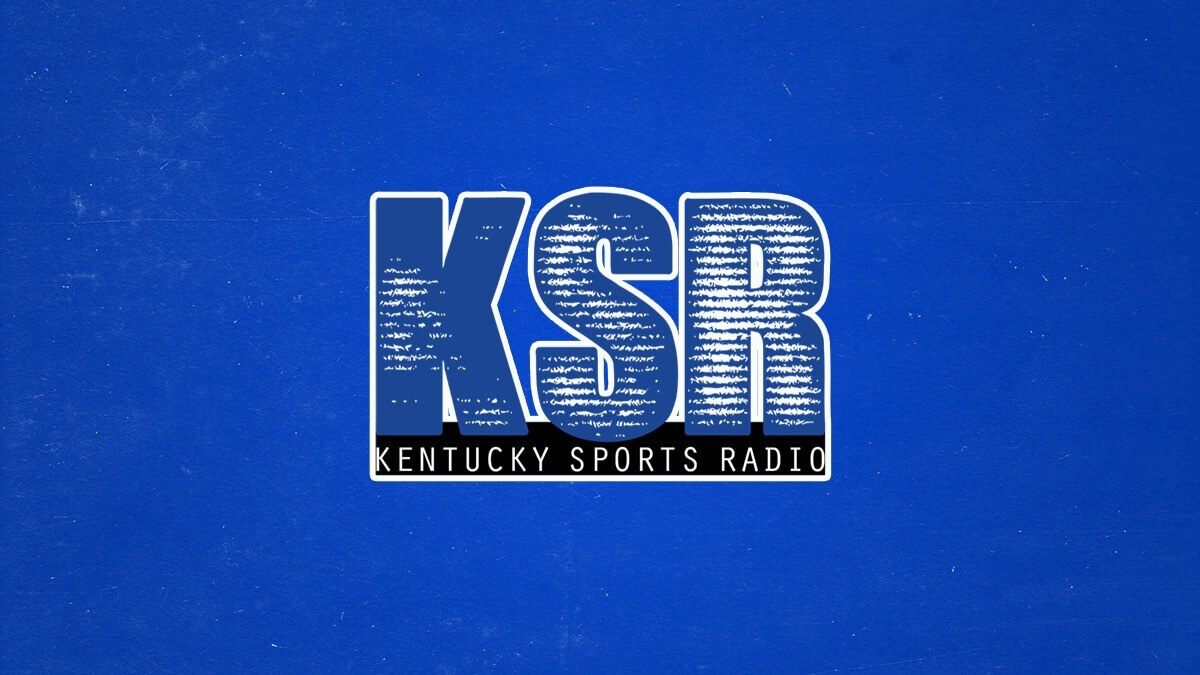
First, an explanation on how the rankings were determined. The Rivals.com points are simply the 5-year average on how many points Rivals awards to a team. Five year average rank was determined by the average rank in the five year period. I then ranked teams based upon their average rank. For example, Alabama was ranked 1.8 over five seasons. Since I wouldn't be able to accurately compare to their five year computer average, I then ranked them 1-120. Power rank value is the five year average of Team Rankings' Predictive Power Ranking. The higher the value the stronger the team. I then ranked the teams 1-120. Finally, the final column with the color determines how many spots a team deviates from their recruiting ranking. A high positive value indicates a low recruiting ranking with excellent results. A negative value indicates good recruiting with poor results.
Let's examine the first question of who the best and worst schools are at gathering and using talent. First, who gets the most from the least? The top chart tells us that over the past five seasons that Boise State, Navy, Air Force, Nevada, TCU, and Wisconsin are the nation's best at getting diamonds from coal. When examining like this,
it's easy to see why names like Chris Petersen, Gary Patterson, and Ken Niumatalolo come up frequently in coaching searches. Just last year, Gary Anderson of Utah State and Bret Bielema of Wisconsin moved on to greener pastures. Both were in the top-10 during the past five seasons. Now we move to who gets the least from the most. UCLA, Memphis, Colorado, and even Michigan have all gotten so little from what they brought in. What's a commonality from all these schools and others near the bottom,
they've all experienced coaching turnover in the past five seasons. Finally, we look at who has gotten what they've put into recruiting. No surprises, Florida, Alabama, and Ohio State all find themselves here. These teams, alongside others of different strength, all experience success relative to their recruiting rankings.
Now we move on to the most important part of the analysis; do recruiting rankings determine team power?
As it turns out, yes. Yes to a level I couldn't have even imagined before. We all know talent is important, but just how well do these rankings determine team power? If you clicked on the link to the study, you'd have noticed that 27 teams have a power ranking within five spots of their five year recruiting average. Even more shocking to me, 53 teams' power ranking is within ten spots of their five year recruiting ranking.
Finally, 78 teams have five year power rank averages within 15 spots of their recruiting ranking. I knew there was a correlation between recruiting success and on-field success, but I couldn't have ever imagined it to be this significant. In fact, when doing simple correlation analysis, the correlation coefficient between five year recruiting rank and five year power rank is .82. Keep in mind that 1 or -1 are perfect correlations.
As it turns out, recruiting is really, really, really important. You are who you recruit.
So, what does this mean going forward for Stoops & company? In his short tenure, Stoops and his coaches have reeled in 2013's #29 ranked class according to Rivals. Currently, we have the #1 class according to Rivals for 2014. It probably won't end up that way because the big boys will take their spots at the top soon enough.
However, Kentucky should finish around the top twelve, which is astounding in itself. Time will tell if Kentucky can act upon these new found recruiting successes, but judging from our coaches past work as coordinators, I'd say that we're on pretty solid ground.
 As it currently stands, Kentucky has the #1 overall recruiting class according to Rivals.com. In football. Seriously, read those first two sentences again. Kentucky, the team coming off a 2-10 (0-8) season, has the #1 ranked football recruiting class according to Rivals.com. It's been repeated to the point of redundancy over the past few hours, but it's worth repeating; what Mark Stoops and his staff have accomplished over the past few months has been nothing but remarkable. Around the nation, much attention is paid to various recruiting services which evaluate the incoming collegiate players. A running joke around the college football community is that there are two seasons, the regular season and the recruiting season. While it may be a joke among people who watch college football, the recruiting industry is serious business among competing schools. There have been dozens of examples throughout recent history of coaches being fired because of their inability to recruit at a higher level. Given the level of attention paid to recruiting nationally (and recently in Kentucky), it led me to the following question; just how important are recruiting rankings to on-field success? To find out I conducted an experiment.
This type of experiment has been conducted in the past, but only teams in the final top-25 have been compared to their individual recruiting rankings. In my mind this is a good place to start, but it leaves much to be desired. What about the other 95 teams? Why is a subjective ranking used to make objective analysis? Why is only one year being used in the analysis? These questions, among others, led me to analyze every single team's recruiting ranking with their computer power ranking. To do this, I compiled every single FBS team's Rivals ranking over the past five seasons alongside their Predictive Power Rating according to TeamRankings.com (I would've used my own rating system, but it only goes back two seasons). I had two things in mind when putting this information together. First, who are the best/worst teams in gathering/utilizing talent. Second, and more importantly, does recruiting ranking determine team power? The below link and pictures tell the story.
The entire study can be found by following this link.
As it currently stands, Kentucky has the #1 overall recruiting class according to Rivals.com. In football. Seriously, read those first two sentences again. Kentucky, the team coming off a 2-10 (0-8) season, has the #1 ranked football recruiting class according to Rivals.com. It's been repeated to the point of redundancy over the past few hours, but it's worth repeating; what Mark Stoops and his staff have accomplished over the past few months has been nothing but remarkable. Around the nation, much attention is paid to various recruiting services which evaluate the incoming collegiate players. A running joke around the college football community is that there are two seasons, the regular season and the recruiting season. While it may be a joke among people who watch college football, the recruiting industry is serious business among competing schools. There have been dozens of examples throughout recent history of coaches being fired because of their inability to recruit at a higher level. Given the level of attention paid to recruiting nationally (and recently in Kentucky), it led me to the following question; just how important are recruiting rankings to on-field success? To find out I conducted an experiment.
This type of experiment has been conducted in the past, but only teams in the final top-25 have been compared to their individual recruiting rankings. In my mind this is a good place to start, but it leaves much to be desired. What about the other 95 teams? Why is a subjective ranking used to make objective analysis? Why is only one year being used in the analysis? These questions, among others, led me to analyze every single team's recruiting ranking with their computer power ranking. To do this, I compiled every single FBS team's Rivals ranking over the past five seasons alongside their Predictive Power Rating according to TeamRankings.com (I would've used my own rating system, but it only goes back two seasons). I had two things in mind when putting this information together. First, who are the best/worst teams in gathering/utilizing talent. Second, and more importantly, does recruiting ranking determine team power? The below link and pictures tell the story.
The entire study can be found by following this link.


 First, an explanation on how the rankings were determined. The Rivals.com points are simply the 5-year average on how many points Rivals awards to a team. Five year average rank was determined by the average rank in the five year period. I then ranked teams based upon their average rank. For example, Alabama was ranked 1.8 over five seasons. Since I wouldn't be able to accurately compare to their five year computer average, I then ranked them 1-120. Power rank value is the five year average of Team Rankings' Predictive Power Ranking. The higher the value the stronger the team. I then ranked the teams 1-120. Finally, the final column with the color determines how many spots a team deviates from their recruiting ranking. A high positive value indicates a low recruiting ranking with excellent results. A negative value indicates good recruiting with poor results.
Let's examine the first question of who the best and worst schools are at gathering and using talent. First, who gets the most from the least? The top chart tells us that over the past five seasons that Boise State, Navy, Air Force, Nevada, TCU, and Wisconsin are the nation's best at getting diamonds from coal. When examining like this, it's easy to see why names like Chris Petersen, Gary Patterson, and Ken Niumatalolo come up frequently in coaching searches. Just last year, Gary Anderson of Utah State and Bret Bielema of Wisconsin moved on to greener pastures. Both were in the top-10 during the past five seasons. Now we move to who gets the least from the most. UCLA, Memphis, Colorado, and even Michigan have all gotten so little from what they brought in. What's a commonality from all these schools and others near the bottom, they've all experienced coaching turnover in the past five seasons. Finally, we look at who has gotten what they've put into recruiting. No surprises, Florida, Alabama, and Ohio State all find themselves here. These teams, alongside others of different strength, all experience success relative to their recruiting rankings.
Now we move on to the most important part of the analysis; do recruiting rankings determine team power? As it turns out, yes. Yes to a level I couldn't have even imagined before. We all know talent is important, but just how well do these rankings determine team power? If you clicked on the link to the study, you'd have noticed that 27 teams have a power ranking within five spots of their five year recruiting average. Even more shocking to me, 53 teams' power ranking is within ten spots of their five year recruiting ranking. Finally, 78 teams have five year power rank averages within 15 spots of their recruiting ranking. I knew there was a correlation between recruiting success and on-field success, but I couldn't have ever imagined it to be this significant. In fact, when doing simple correlation analysis, the correlation coefficient between five year recruiting rank and five year power rank is .82. Keep in mind that 1 or -1 are perfect correlations. As it turns out, recruiting is really, really, really important. You are who you recruit.
So, what does this mean going forward for Stoops & company? In his short tenure, Stoops and his coaches have reeled in 2013's #29 ranked class according to Rivals. Currently, we have the #1 class according to Rivals for 2014. It probably won't end up that way because the big boys will take their spots at the top soon enough. However, Kentucky should finish around the top twelve, which is astounding in itself. Time will tell if Kentucky can act upon these new found recruiting successes, but judging from our coaches past work as coordinators, I'd say that we're on pretty solid ground.
First, an explanation on how the rankings were determined. The Rivals.com points are simply the 5-year average on how many points Rivals awards to a team. Five year average rank was determined by the average rank in the five year period. I then ranked teams based upon their average rank. For example, Alabama was ranked 1.8 over five seasons. Since I wouldn't be able to accurately compare to their five year computer average, I then ranked them 1-120. Power rank value is the five year average of Team Rankings' Predictive Power Ranking. The higher the value the stronger the team. I then ranked the teams 1-120. Finally, the final column with the color determines how many spots a team deviates from their recruiting ranking. A high positive value indicates a low recruiting ranking with excellent results. A negative value indicates good recruiting with poor results.
Let's examine the first question of who the best and worst schools are at gathering and using talent. First, who gets the most from the least? The top chart tells us that over the past five seasons that Boise State, Navy, Air Force, Nevada, TCU, and Wisconsin are the nation's best at getting diamonds from coal. When examining like this, it's easy to see why names like Chris Petersen, Gary Patterson, and Ken Niumatalolo come up frequently in coaching searches. Just last year, Gary Anderson of Utah State and Bret Bielema of Wisconsin moved on to greener pastures. Both were in the top-10 during the past five seasons. Now we move to who gets the least from the most. UCLA, Memphis, Colorado, and even Michigan have all gotten so little from what they brought in. What's a commonality from all these schools and others near the bottom, they've all experienced coaching turnover in the past five seasons. Finally, we look at who has gotten what they've put into recruiting. No surprises, Florida, Alabama, and Ohio State all find themselves here. These teams, alongside others of different strength, all experience success relative to their recruiting rankings.
Now we move on to the most important part of the analysis; do recruiting rankings determine team power? As it turns out, yes. Yes to a level I couldn't have even imagined before. We all know talent is important, but just how well do these rankings determine team power? If you clicked on the link to the study, you'd have noticed that 27 teams have a power ranking within five spots of their five year recruiting average. Even more shocking to me, 53 teams' power ranking is within ten spots of their five year recruiting ranking. Finally, 78 teams have five year power rank averages within 15 spots of their recruiting ranking. I knew there was a correlation between recruiting success and on-field success, but I couldn't have ever imagined it to be this significant. In fact, when doing simple correlation analysis, the correlation coefficient between five year recruiting rank and five year power rank is .82. Keep in mind that 1 or -1 are perfect correlations. As it turns out, recruiting is really, really, really important. You are who you recruit.
So, what does this mean going forward for Stoops & company? In his short tenure, Stoops and his coaches have reeled in 2013's #29 ranked class according to Rivals. Currently, we have the #1 class according to Rivals for 2014. It probably won't end up that way because the big boys will take their spots at the top soon enough. However, Kentucky should finish around the top twelve, which is astounding in itself. Time will tell if Kentucky can act upon these new found recruiting successes, but judging from our coaches past work as coordinators, I'd say that we're on pretty solid ground.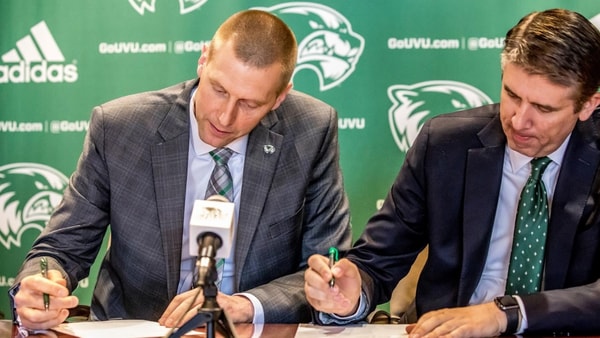
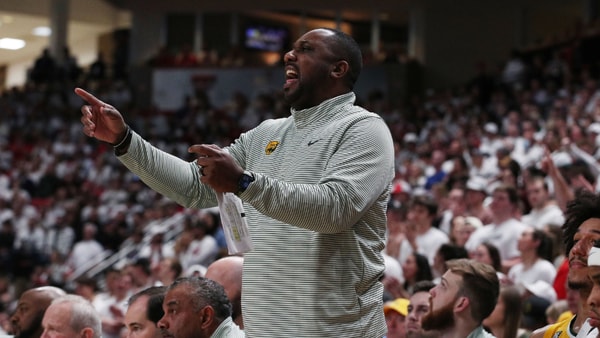
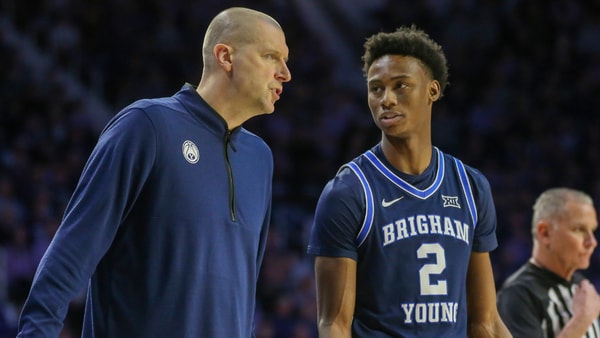
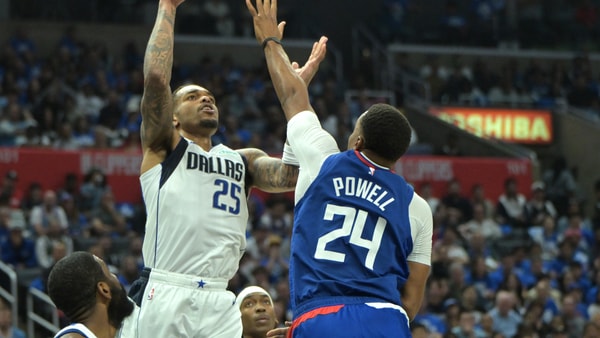
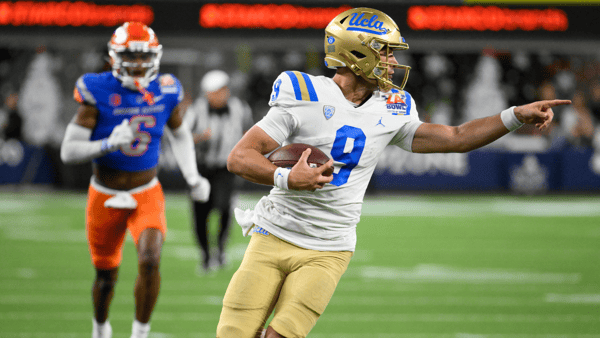
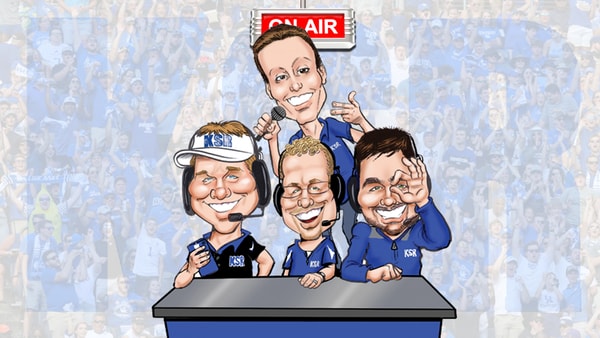
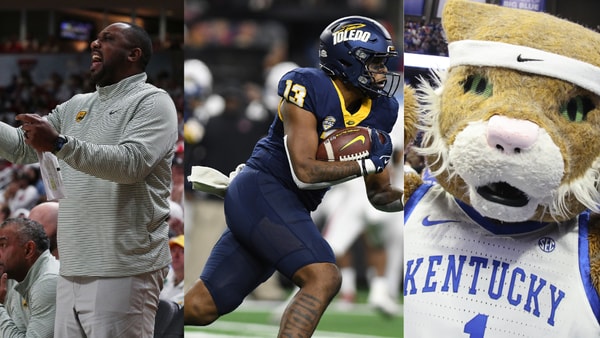
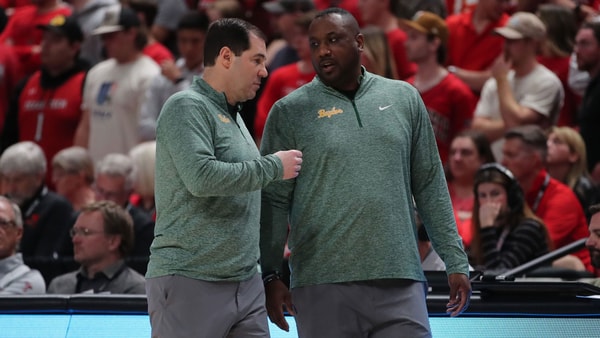
Discuss This Article
Comments have moved.
Join the conversation and talk about this article and all things Kentucky Sports in the new KSR Message Board.
KSBoard